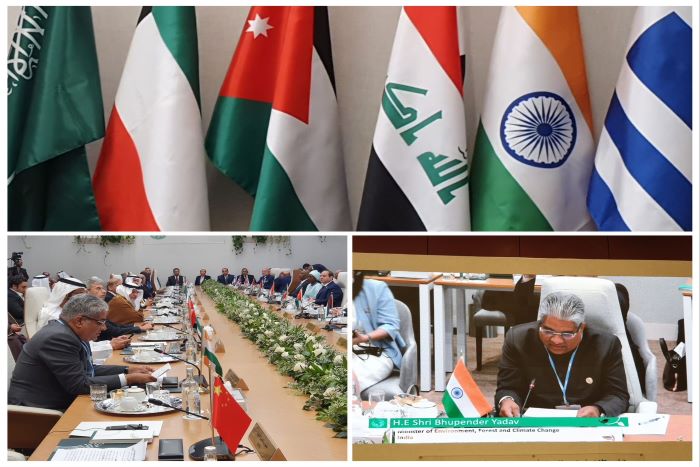Climate adaptation in the form of early warning dissemination is key in safeguarding lives, and livelihoods, India’s environment minister Bhupendra Yadav said at the launch of the initiative
India’s Union environment minister Bhupendra Yadav welcomed the United Nations’ initiative for an Executive Action Plan of Early Warning System (EWS) For All. The initiative calls for initial new targeted investments between 2023 and 2027 of $3.1 billion, and will cover disaster risk knowledge, observations and forecasting, preparedness and response, and communication of early warnings.
“The global pace of climate mitigation is not enough to contain the rate of climate change. There is an urgent need for the world to acknowledge the cascading natural hazards that cause substantial losses around the world,” Yadav said at the initiative’s launch on Day 2 of COP27.
“With climate finance still scarce, climate adaptation in the form of early warning dissemination is key in safeguarding lives, and livelihoods. Early Warnings For All play a part in not just containing the immediate physical impacts, but also mitigating the far-reaching long-term socio-economics implications that follow,” Yadav added.
During the launch, UN secretary general António Guterres said, “Countries with limited early warning coverage have disaster mortality eight times higher than countries with high coverage. The Action Plan launched sets out the way forward to right this wrong, and protect lives and livelihoods. The United Nations system, governments and partners will work together, through policy, scientific and technical and financial action tracks to achieve the goal within five years.” He asked the World Meteorological Organisation (WMO) to ensure every person on Earth is protected by early warning systems within five years.
The IPCC’s Sixth Assessment Report on Impacts, Adaptation, and Vulnerability highlighted the need for adaptation initiatives such as early warning systems and disaster risk management activities, which also work to alleviate the benefits of other adaptation measures.
India’s push for sustainable development
India has been at the forefront of the sustainable development movement, and established the Coalition for Disaster Resilient Infrastructure (CDRI) in 2019, “which is working towards developing applications of climate forecast and early warning for reducing infrastructure losses and disruption in basic services,” Yadav said. It currently includes 31 countries and eight member organisations. “There is a growing footprint in the Africa region. South Sudan and the European Investment Bank are the latest members endorsing the Charter. CDRI’s strategic initiatives, expanding programme, and membership engagement is enabling it to progress towards the achievement of its goal,” the environment minister said at the event.
Yadav also supported the launch of the Middle East Green Initiative Summit 2022, which was held on the sidelines of the COP. The initiative aims to plant 50 billion trees across the Middle East. “Various initiatives undertaken by the Middle East Green Initiative, relate directly to encouraging sustainable consumption practices like planting of 50 billion trees across the Middle East that lead to employment opportunities and strengthening the resilience of countries,” Yadav said.
About The Author
You may also like
Zero sharm game: COP27 saves face with minimum common agreements
Issue of mitigation in agriculture remains a sticky subject
Oil and gas lobby makes its presence felt more than ever at COP27
Question of ‘who will pay’ loomed large over LTF negotiations at COP27
Mitigation work programme: Equity gone, rich countries push hard to shift emission cuts to Global South at COP27


